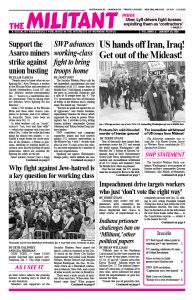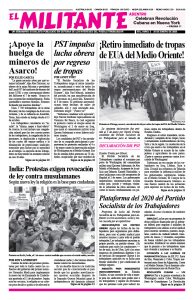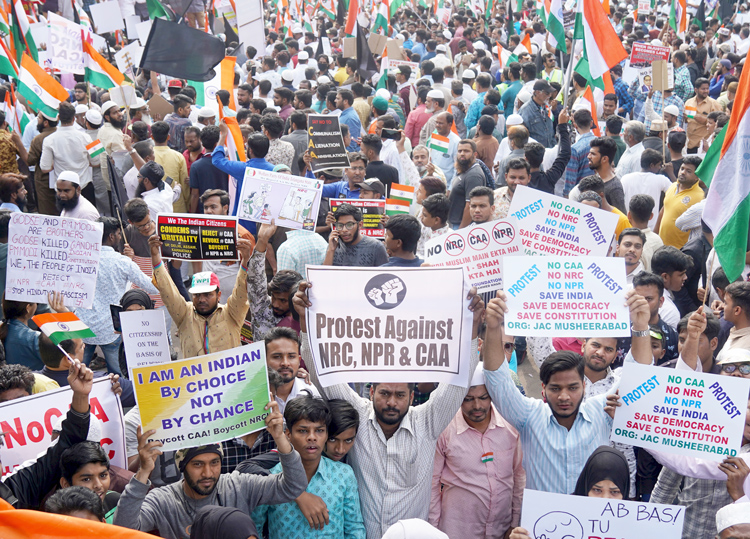Large actions continue to rock the government of Prime Minister Narendra Modi, protesting his push to implement a new anti-Muslim citizenship act, undermining India’s secular constitution. As many as 200,000 demonstrated in the southern Indian city of Hyderabad Jan. 4, above. A similar-sized demonstration took place in Kochi, in the southern state of Kerala Jan. 1. A prominent banner in Hyderabad — “Not Hindus. Not Muslims. Not Jains. Not Christians. Not Parsees. Not Buddhists. ONLY INDIANS” — reflected the breadth of the mobilizations.
Modi’s Hindu-nationalist Bharatiya Janata Party is seeking to ease citizenship requirements for non-Muslim undocumented minorities emigrating from neighboring majority-Muslim countries, like Afghanistan, Bangladesh and Pakistan.
The BJP also drew up a reactionary nationwide new citizen roll to register all of India’s 1.3 billion people. Some 200 million Muslims, India’s second-largest religious community, who are amongst the poorest layer of class society, often don’t have the required documentation to prove citizenship. A pilot program in Assam led to the detention of hundreds of Muslims.
India’s tricolor flag has been adopted by the current protest movement as a symbol of the country’s secular tradition. Some Muslim protesters carried placards reading, “I am an Indian by choice, not by chance,” referring to millions of the Islamic faith who live in India. In 1947 the British colonialists engineered a bloody partition of the country when they were forced to relinquish their centurylong hold, breaking Pakistan away as a Muslim state and weakening the overall independence movement.
The Modi regime responded to the mobilizations with bans on the internet and social media and with cop repression. On Jan. 5 dozens of masked men entered the Jawaharlal Nehru University in New Delhi, a center of the protests, assaulting students and staff and injuring more than 30.
The following day fresh student mobilizations erupted in at least 19 cities to protest these assaults.


